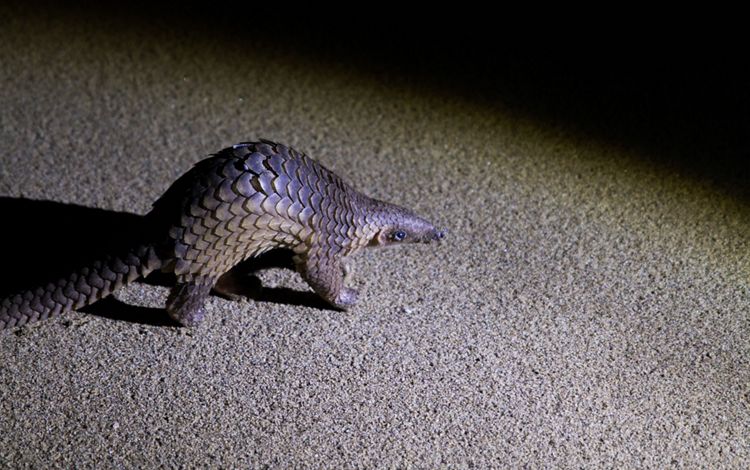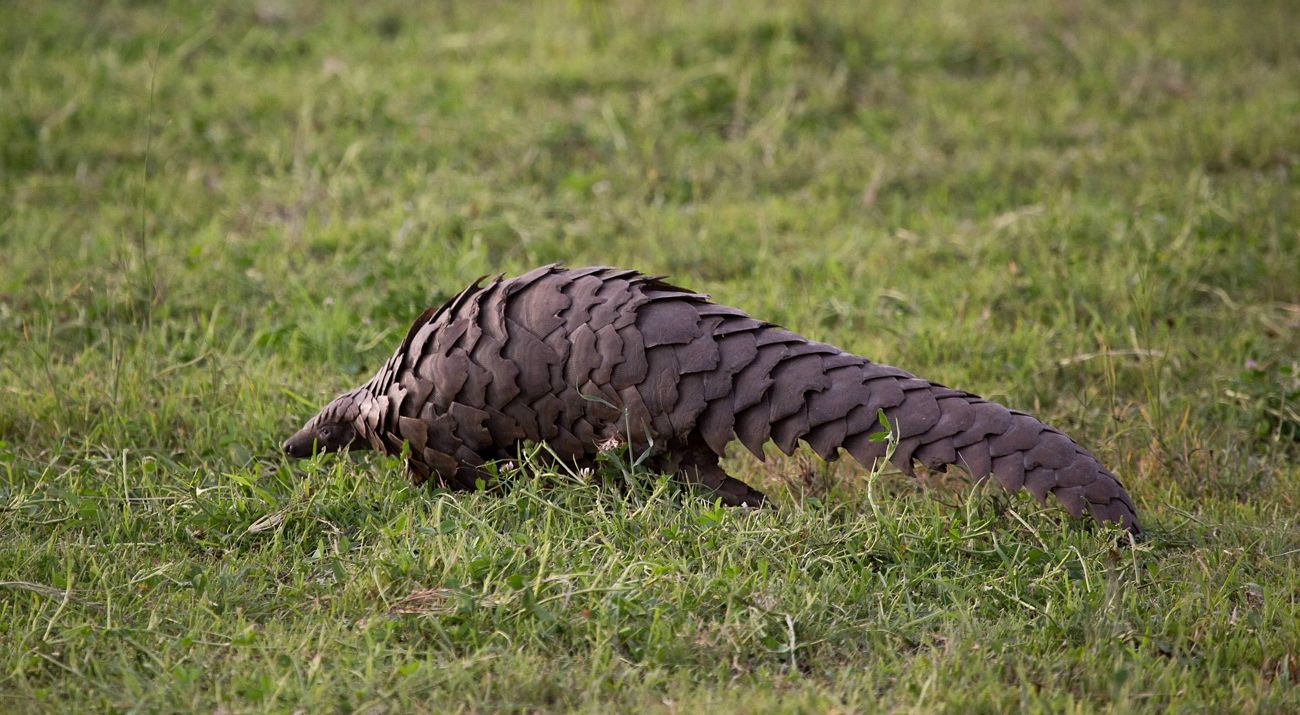Meet the Pangolin
Pangolins are known as the guardians of the forest because they protect forests from termite destruction, maintaining a balanced ecosystem. Of the eight pangolins species, four are found in Asia and four in Africa. Pangolins are the world’s only scaly mammals, and small as they appear, an adult pangolin weighing 6.6 pounds can consume more than 0.66 pounds of termites in one meal. Thanks to their big appetite, one pangolin can protect an area as large as 31 football fields (41 acres) from termite destruction. A pangolin’s scales weigh approximately 20 percent of its total mass. These solid scales are their “weapon.” When threatened, pangolins will quickly curl up into a tight ball, and by tucking face under their tail, their overlapping scales serve as a tough armor.
Unfortunately, this armor also puts pangolins at risk of poaching.

.jpg?crop=206%2C0%2C3587%2C2248&wid=750&hei=470&scl=4.782978723404256)
.jpg?crop=0%2C80%2C4000%2C2506&wid=750&hei=470&scl=5.333333333333333)
Protecting the Pangolin
These little guardians have survived thousands of years of natural changes, but now they are on the verge of extinction due to habitat loss and illegal poaching. Many Asian cultures incorrectly believe their scales have medicinal and magical properties, causing a huge demand on the black market. More than 1 million pangolins were brutally murdered for black-market trade in the past 10 years; that is 11 pangolins every hour. All eight species of pangolin are listed under Appendix I (threatened with extinction) in the Convention on International Trade in Endangered Species of Wild Fauna and Flora (CITIES).
Recognizing the need for drastic action to protect pangolins, The Nature Conservancy is working with local and international partners to raise public awareness on saving pangolins and fighting against their illegal trade. In 2016, we partnered with WildAid to produce a PSA featuring Chinese celebrity Angelababy. We’ve also helped in the production of another PSA featuring Jackie Chan.
Join us: Help TNC continue to conserve unique species in China and across the globe.
